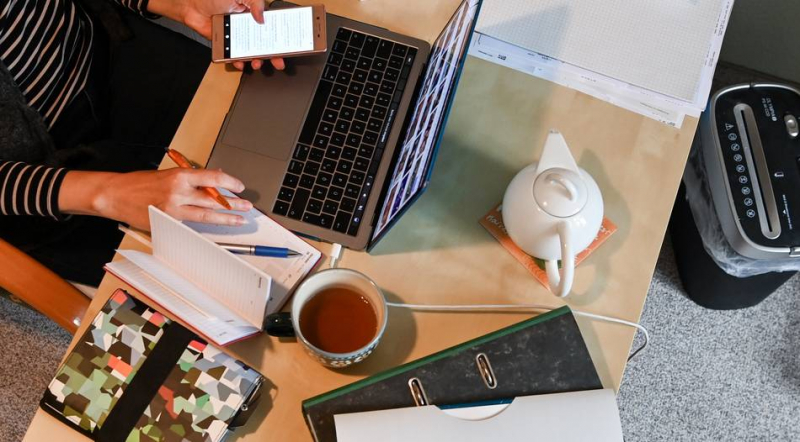Studying in Germany on Russian Time
The pandemic has changed plans for many students studying abroad — how efficient is online learning?

The pandemic started almost a year ago. Now, students all around the world are very familiar and used to digital learning from home. For some, a dream came true — they can half-listen the professor who explains a complicated material to them while wearing their pajamas, and making their first cup of tea or coffee. However, it can also be quite frustrating when you only meet lecturers and fellow students on a PC screen. Research even shows that lack of social interaction with fellow students and teachers can cause mental health problems due to loneliness and sadness.
For me, studying online has some ups and downs. Now that it is getting dark earlier, some of my days have become a blur. I’m moving from my bed to my desk and from my desk to my bed again. And on the next day, it’s all the same. For my studies, I often sit in front of a screen several hours a day, attending lectures, looking up literature for my thesis, and discussing the thesis with my supervisor. Ironically, the same generation that kept addressing us for spending too much time on the computer now demands that we embrace online education.
However, I also realized what opportunity the internet actually has to offer us students. I cannot visit ITMO since Russia has not yet opened its national borders. But since ITMO offers all my courses online, I can cross more than 3,000 kilometers that separate Germany from St. Petersburg within seconds. One click and I am in a Zoom conference with other students from all over the world or in a Skype call with my supervisor. Sometimes it works well, sometimes — not so much. While online teaching is also difficult for teachers, because certain things are simply not that easy to explain and online and the technical equipment does not always work perfectly — it is still all in all entertaining and instructive. Moreover, comparing my current online classes with the ones I had last semester, I have the feeling that everything works a bit smoother now. Of course, the online classes do not have the quality of real lectures at the university, during which you meet your fellow classmates and discuss and talk with them and possibly make international friendships. And I must be honest that I miss this interaction — class discussions and asking questions, since these discussions are often quite interesting and motivating for me.
Obviously, for me as a PhD student, doing research is also not that easy now. As I am studying urbanism, I do not depend on access to laboratories, but still — doing interviews, surveys or observations is not that easy via a PC screen.
Finally, there is no longer any opportunity to leave the pressure of studying behind. For example, before the pandemic, there was always an opportunity to celebrate together after an exam week. Since all bars are closed in Germany, there is no such opportunity right now. However there is certainly one huge advantage of studying online for foreign students: it is much cheaper, since one can live with his parents and do not need to pay rent in St. Petersburg. Obviously, all my courses are offered according to Moscow Time — which means that when attending, I always need to keep the time difference in mind. However, since the time difference between Germany and St. Petersburg is only one or two hours (depending on whether winter or summer time is applied in Germany) and most of my classes this semester start in the afternoon, there is normally no risk of oversleeping. For some other students it seems to be a big problem. One would think that the degree of a student’s fatigue depends on the respective time zone, but I was taught better about that. I recently had a talk with a fellow student from China, who already seemed livelier at 7 am in the morning then me, and talked about his trip to Germany in a mix of Russian and English.
But all in all, online learning is a great compromise and for me and an opportunity to participate, at least virtually, in Russian university life. As worrying and annoying the situation might be for many people this year, it is also a blessing that we can see how many doors the internet can open for us — the virtual space that we now inhabit is not called the World Wide Web for nothing.
